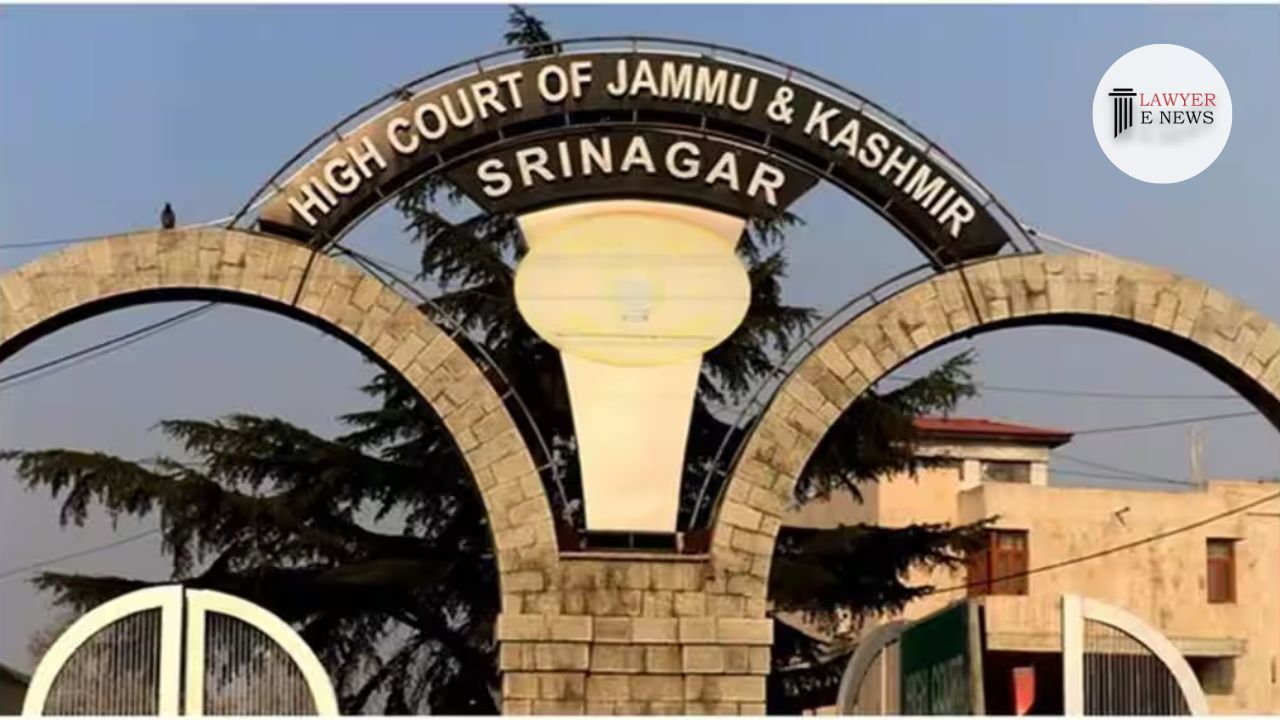-
by Admin
15 February 2026 5:35 AM



In a significant judgment, the Jammu and Kashmir and Ladakh High Court has quashed the FIR filed against Bajaj Allianz General Insurance Company Ltd. The court ruled that the allegations made in the complaint, which centered around the non-payment of an insurance claim leading to the death of Inder Pal Singh, were purely civil in nature and did not constitute a criminal offence. Justice Sanjay Dhar's decision emphasized the lack of jurisdiction of the Chief Judicial Magistrate (CJM) Jammu and pointed out the misuse of criminal proceedings to settle civil disputes.
Justice Sanjay Dhar's judgment underscored the improper exercise of jurisdiction by the CJM Jammu. The court observed, “Neither any event nor its consequence has taken place within the territorial limits of either CJM or within the territorial limits of Police Station, Gandhi Nagar, Jammu, so as to give jurisdiction to them to entertain and take action on the complaint filed by respondent No.3.” The insurance policy and subsequent communications took place primarily in Delhi, and the death occurred in Switzerland, thus falling outside the territorial jurisdiction of the Jammu authorities.
The court clarified that the dispute was fundamentally contractual, relating to the alleged failure of the insurance company to honor its commitment under the insurance policy. Justice Dhar stated, “The transaction between the insurer and the insured is purely contractual in nature. If any of the parties to this contract defaults in honouring its commitment, it cannot form a basis for launching a criminal prosecution.”
Reiterating established legal principles, the court highlighted that civil disputes should not be given a criminal color merely to apply pressure for a settlement. Quoting the Supreme Court's position in G. Sagar Suri And Anr vs State Of Up. And Ors, Justice Dhar noted, “Criminal proceedings are not a short cut of other remedies available in law. Before issuing process, a criminal court has to exercise a great deal of caution.”
In a critical observation, Justice Dhar stated, “The registration and consequent investigation of the impugned FIR against the petitioner is nothing but an abuse of process of law. Therefore, it is a fit case where this Court should exercise its power under Article 226 of the Constitution read with Section 482 of the Criminal Procedure Code to quash the FIR and the proceedings emanating therefrom to secure the ends of justice.”
The Jammu and Kashmir and Ladakh High Court's ruling quashing the FIR against Bajaj Allianz underscores the judiciary's commitment to preventing the misuse of criminal law in civil disputes. By setting aside the FIR, the court has reinforced the legal principle that civil matters should be resolved through appropriate civil proceedings, not through criminal prosecution. This judgment is expected to have a significant impact on how similar cases are approached in the future, promoting the proper channeling of contractual disputes and ensuring that criminal proceedings are not misused for civil grievances.
Date of Decision: 24-05-2024
Bajaj Allianz General Insurance Company Ltd. vs. State through SHO Police Station and Others
